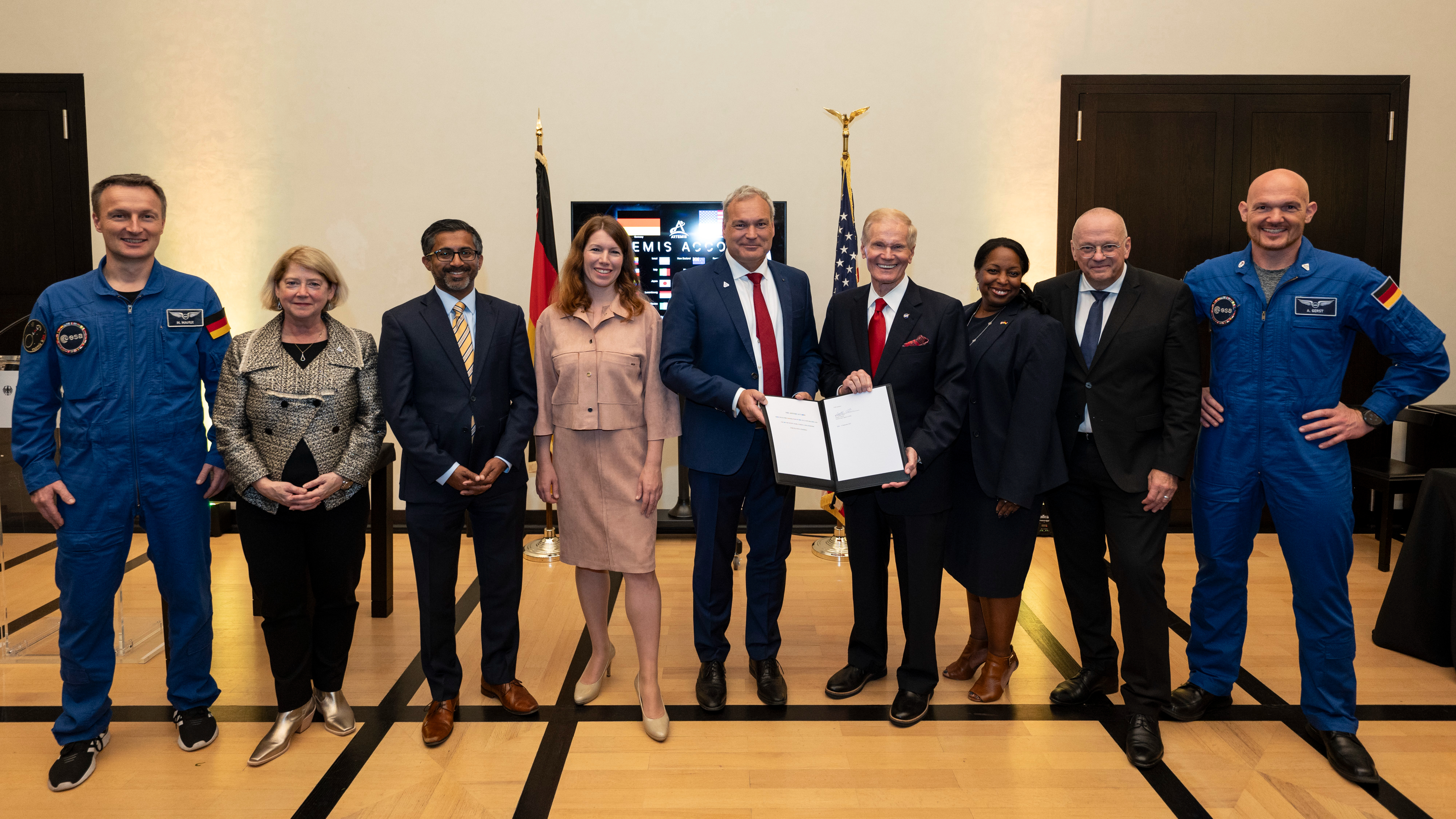Germany signs on to NASA's Artemis Accords for moon exploration
The European nation is the 29th to join the framework for peaceful and responsible lunar exploration.

Germany is the latest country to sign up to NASA's Artemis Accords.
The signing ceremony took place at the German Ambassador's Residence in Washington on Thursday (Sept. 14). NASA Administrator Bill Nelson participated in the signing ceremony for the agency, with Walther Pelzer, Director General of the German Space Agency at the German Aerospace Center (known by its German acronym, DLR), signing on behalf of Germany.
"I'm thrilled to welcome Germany to the Artemis Accords family," said Nelson, according to a NASA statement. "Germany has long been one of NASA's closest and most capable international partners, and their signing today demonstrates their leadership now and into the future — a future defined by limitless possibilities in space and the promise of goodwill here on Earth."
Related: What are the Artemis Accords?
The Artemis Accords seek to provide a framework for safe, transparent and sustainable lunar exploration. They are also the diplomatic side to NASA's Artemis program, in which the and the United States aims to lead nations in a return to the moon.
Pelzer said that German space sector companies are already contributing to the Artemis program, and Germany's signing of the Accords brings new possibilities.
"The Artemis Accords offer a multitude of new opportunities for industry and scientific research in Germany and ultimately also across Europe," said Pelzer.
Breaking space news, the latest updates on rocket launches, skywatching events and more!
The Accords were launched in 2020, when eight nations signed up. Germany becomes the 29th nation to sign the Artemis Accords, according to a U.S. State Department statement. Argentina became the 28th country in July, following India, Spain and Ecuador a month earlier.
"The diverse Accords signatories represent a growing multilateral conversation and share a common vision of peaceful space cooperation," the State Department statement read.
NASA aims to send four astronauts around the moon and back with the Artemis 2 mission, launching around November 2024. Artemis 3 will then seek to put humans on the lunar surface as soon as 2025 or 2026.
China is leading another group of countries in a parallel lunar exploration endeavor, seeking to establish a lunar base in the 2030s. South Africa this month became the fourth country to join that effort, along with China, Russia and Venezuela.

Andrew is a freelance space journalist with a focus on reporting on China's rapidly growing space sector. He began writing for Space.com in 2019 and writes for SpaceNews, IEEE Spectrum, National Geographic, Sky & Telescope, New Scientist and others. Andrew first caught the space bug when, as a youngster, he saw Voyager images of other worlds in our solar system for the first time. Away from space, Andrew enjoys trail running in the forests of Finland. You can follow him on Twitter @AJ_FI.
